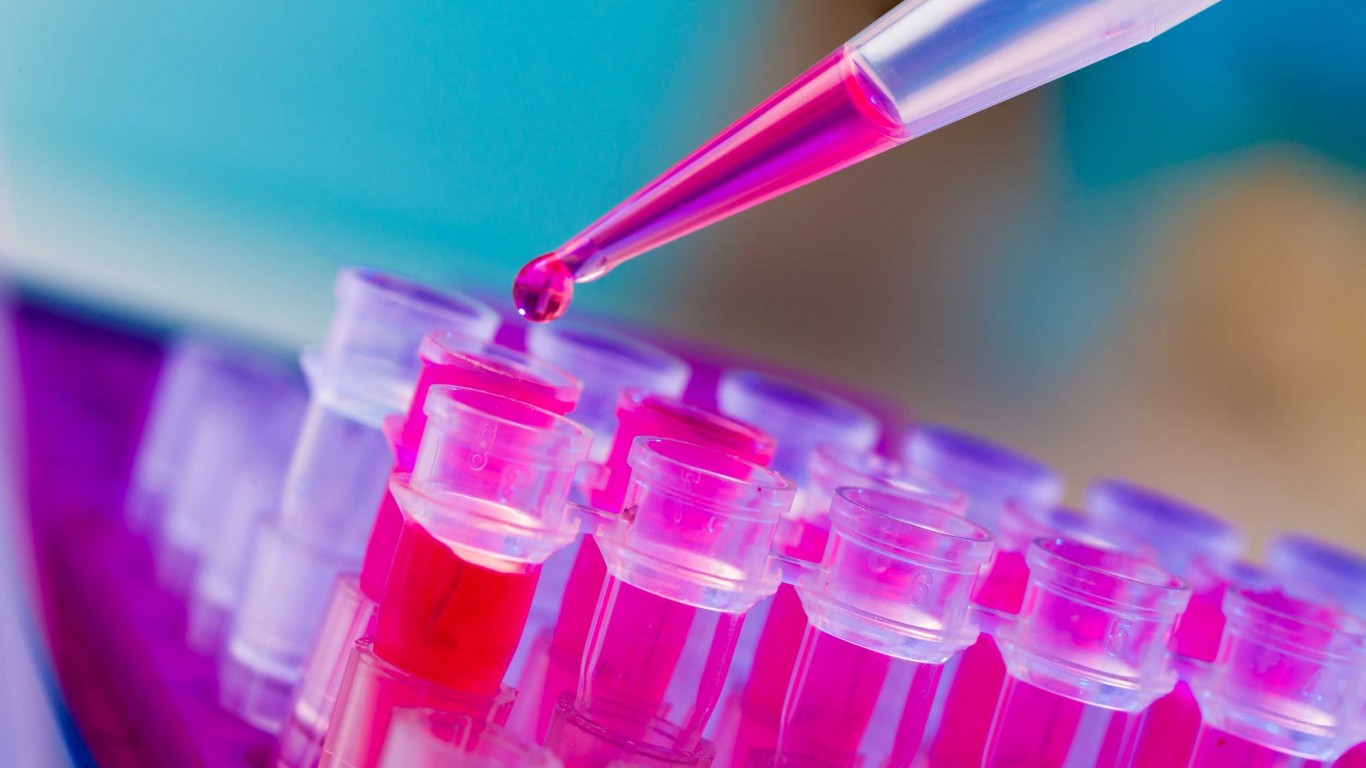Health and Healthcare
With Arcus Partnership vs. Buyout, Gilead Moves Beyond Remdesivir COVID-19 Focus

Published:

In a world where investors are starving to find growth, many of the well established biotech leaders and many of the large pharmaceutical companies have been acquiring growth on top of their own existing drug pipeline programs. Buying growth does not have to automatically imply that an acquisition of an entire company is necessary. Big biotech and pharma players have been opting to pursue partnerships or to make minority investments in the smaller emerging companies.
By investing either with a stake or via funding for studies and rights to sales down the road, companies are hoping to avoid making $5 billion and $10 billion acquisitions which either do not pan out or which fail to live up to expectations. And at this time in 2020, all the investing world seems to be cared about on a daily basis is which company will be in line to make a vaccine, treatment or cure for COVID-19.
Gilead Sciences, Inc. (NASDAQ: GILD) is more than just formidable in biotech and pharma, but for most of 2020 its full story has been around remdesivir for a COVID-19 treatment. Gilead has grown over time with blockbuster drugs, but the company has run into serious growth issues in recent years. After having already made significant buyouts, Gilead has established a 10-year partnership with a company called Arcus Biosciences Inc. (NASDAQ: RCUS).
Arcus’ 10-year partnership with Gilead might leave some speculators disappointed that there was not an outright buyout, but this deal is consistent with Arcus having prior partnerships. The company is using its therapeutic assets to develop new combinations and it should allow a more rapid clinical process with a larger partner at its side. Arcus currently has 10 clinical trials, including a Phase III lung cancer trial, and it has 6 preclinical compounds it is evaluating.
The deal is not expected to close until the third quarter and Arcus is set to receive $375 million in the deal. Of that sum, a $175 million cash payment is being made along with a $200 million equity investment at a price of $33.54 per share. This will give Gilead a stake of about 10% with the option to go up to a 35% stake over the next five years either at a 20% premium or at a minimum of its initial share purchase price.
The larger win for Arcus is that Gilead will provide some $400 million to support research and development over the time of the partnership at Arcus’ discretion. In effect, Gilead is getting access to Arcus’ current and future immuno-oncology programs and Arcus could ultimately receive a lot more cash, funding, and tiered royalty payments all adding to a maximum of $1.22 billion.
Arcus is no stranger to big partnerships. In late 2019, it and Roche’s Genentech announced that the two were partnering up on two clinical trials for colorectal and pancreatic cancer. That partnership is to evaluate Arcus’s AB928 in various combinations.
Wedbush Securities is the first firm we have seen to issue a report on Arcus. The firm’s Robert Driscoll reiterated his Outperform rating and raised his already aggressive price target of $40 up to $48. Wedbush had previously targeted Arcus among its anticipated ASCO winners. His fresh analyst report focused on the financing terms and upside:
We have conservatively adjusted our model by incorporating the significant upfront cash, equity investment and R&D reimbursements, while noting significant near term opt-in and milestone potential – our price target increases to $48 due to removal of previously modeled equity financings.
There had been rumors of a Gilead deal back in April, and the market cap at that time was just above $700 million when its shares moved from $15 to $28 or so. Arcus shares were trading at $33.54 before the news, but the post-announcement reaction had Arcus Bio’s stock price down over 18% at $27.25 late on Wednesday. Arcus Bio’s 52-week range is $6.30 to $37.41.
Retirement can be daunting, but it doesn’t need to be.
Imagine having an expert in your corner to help you with your financial goals. Someone to help you determine if you’re ahead, behind, or right on track. With SmartAsset, that’s not just a dream—it’s reality. This free tool connects you with pre-screened financial advisors who work in your best interests. It’s quick, it’s easy, so take the leap today and start planning smarter!
Don’t waste another minute; get started right here and help your retirement dreams become a retirement reality.
Thank you for reading! Have some feedback for us?
Contact the 24/7 Wall St. editorial team.